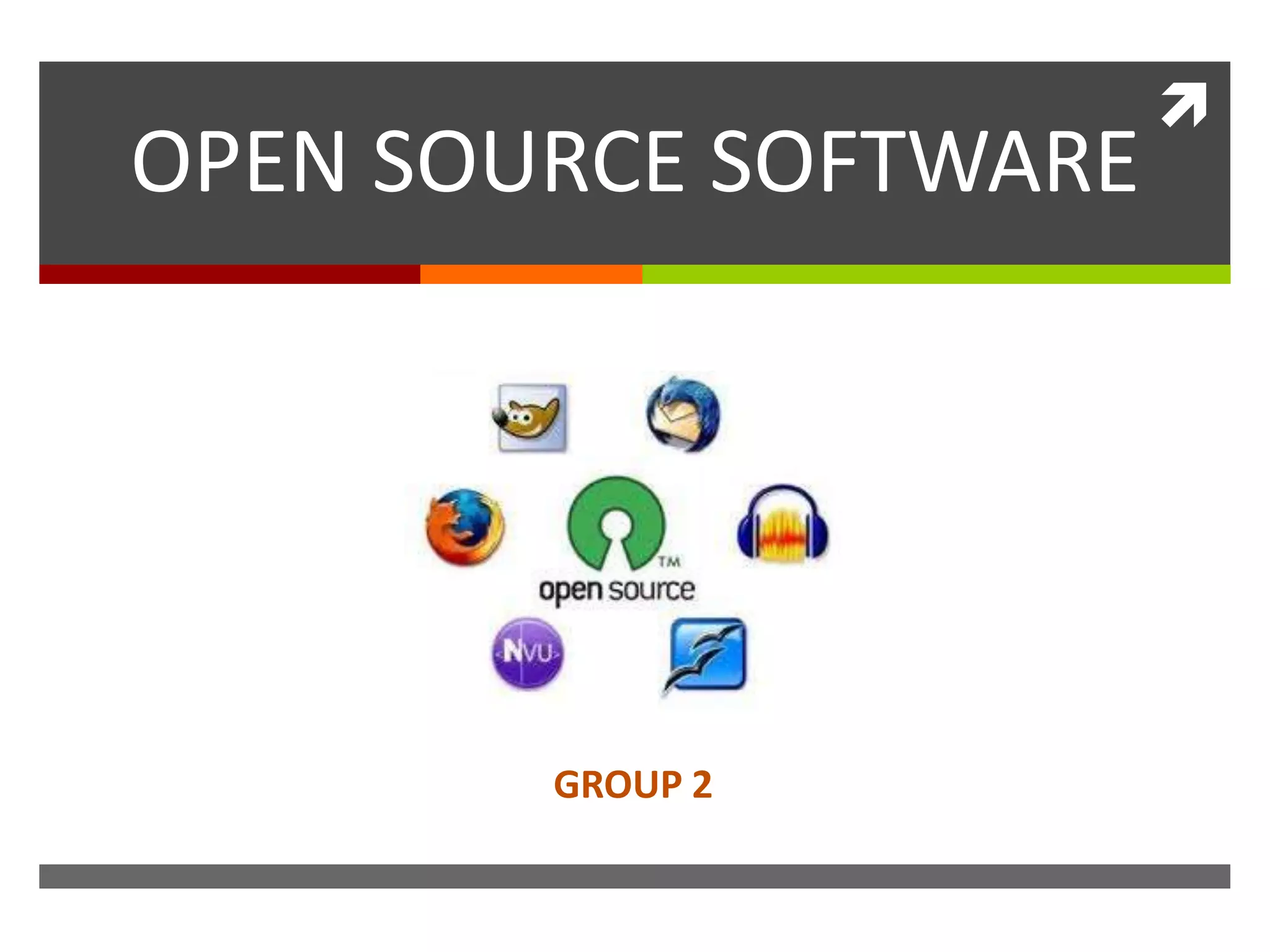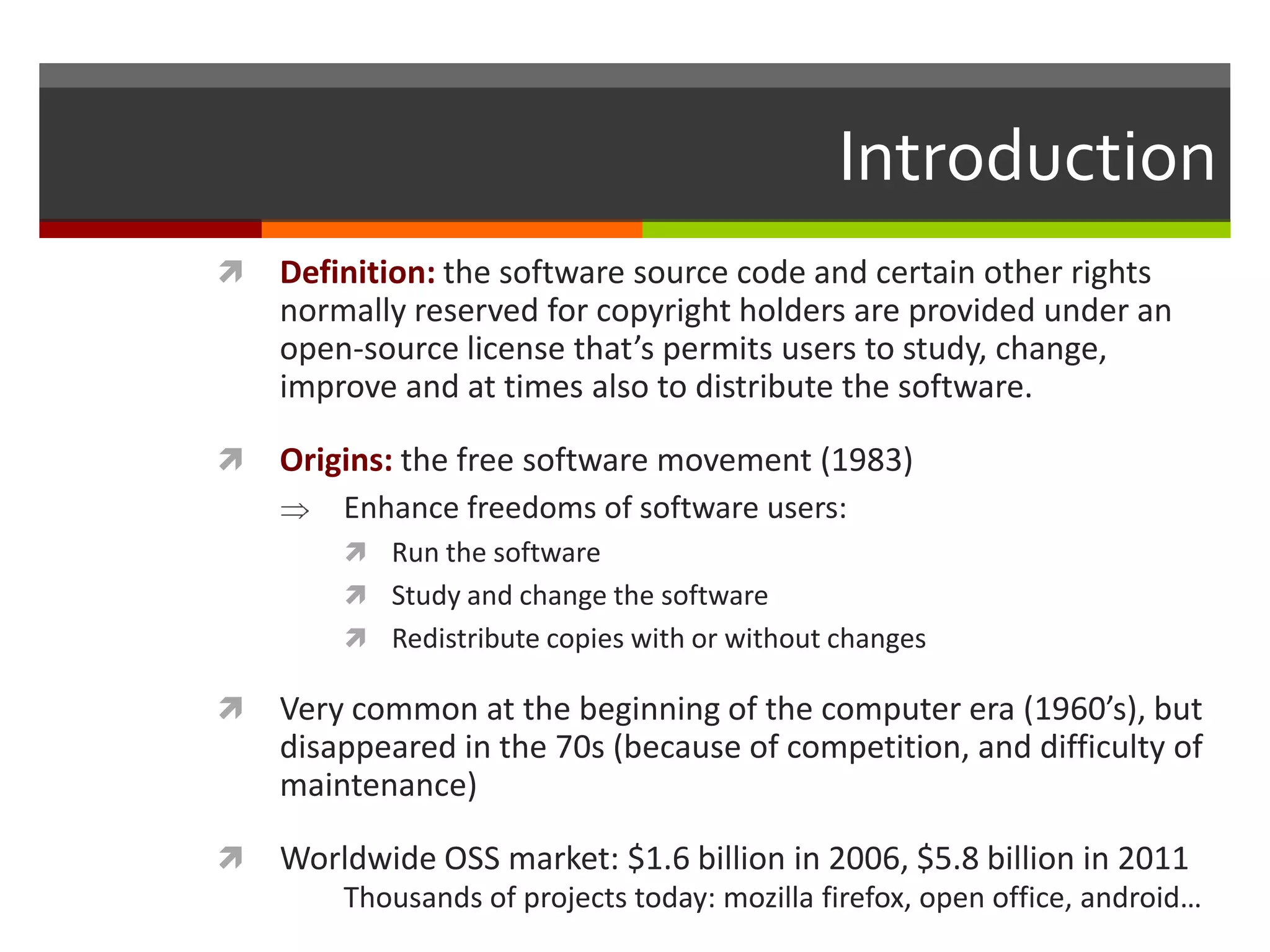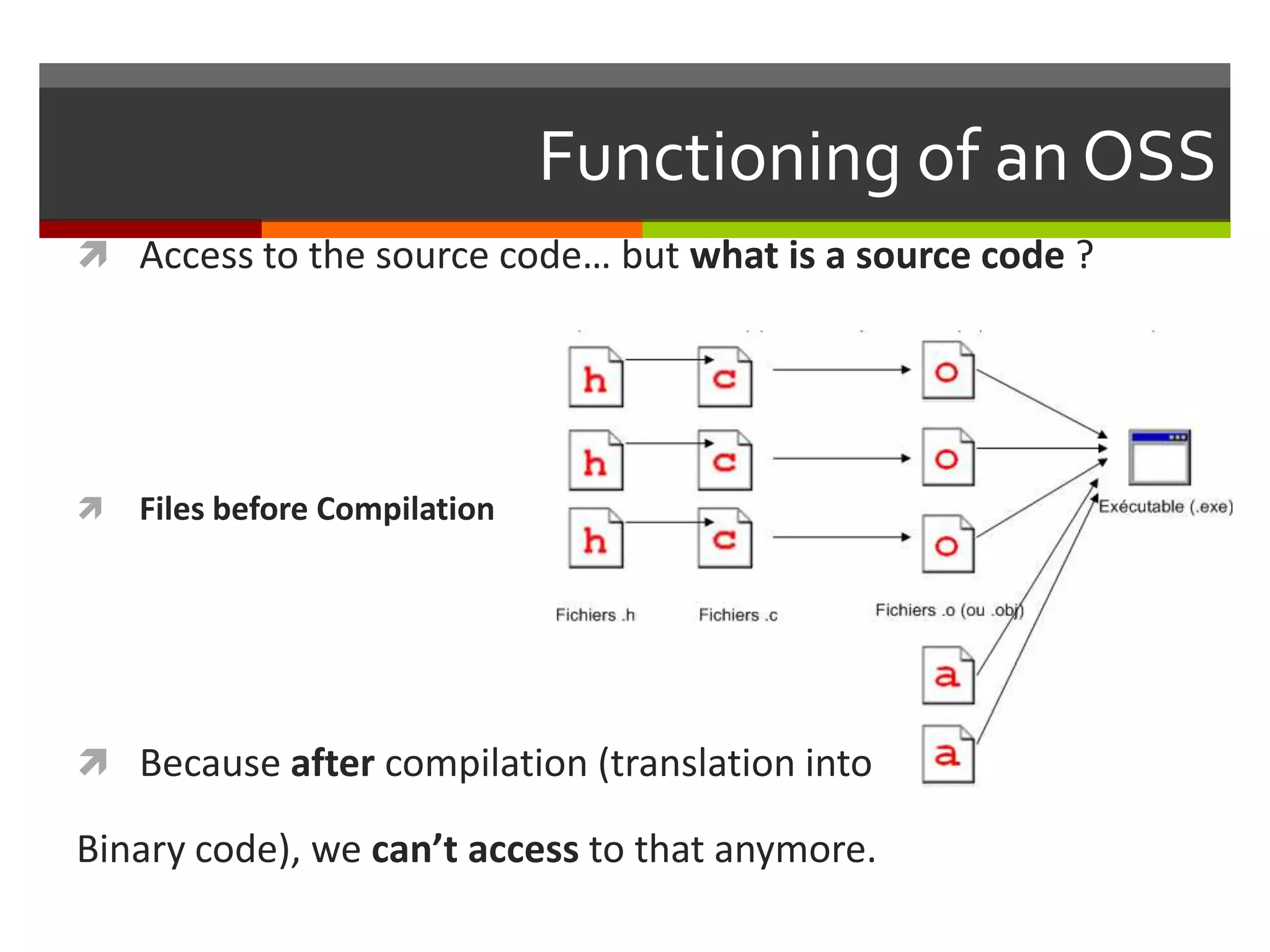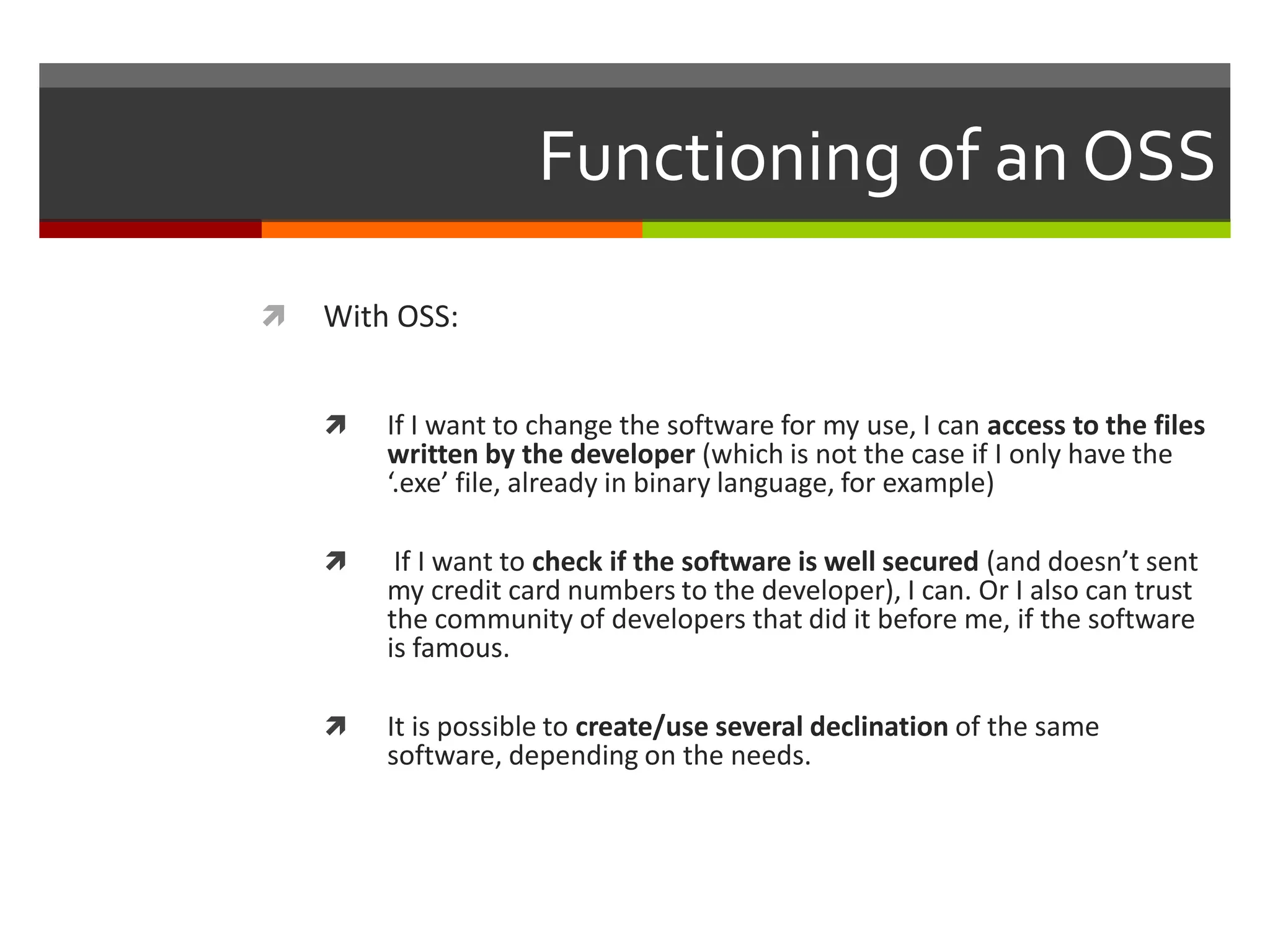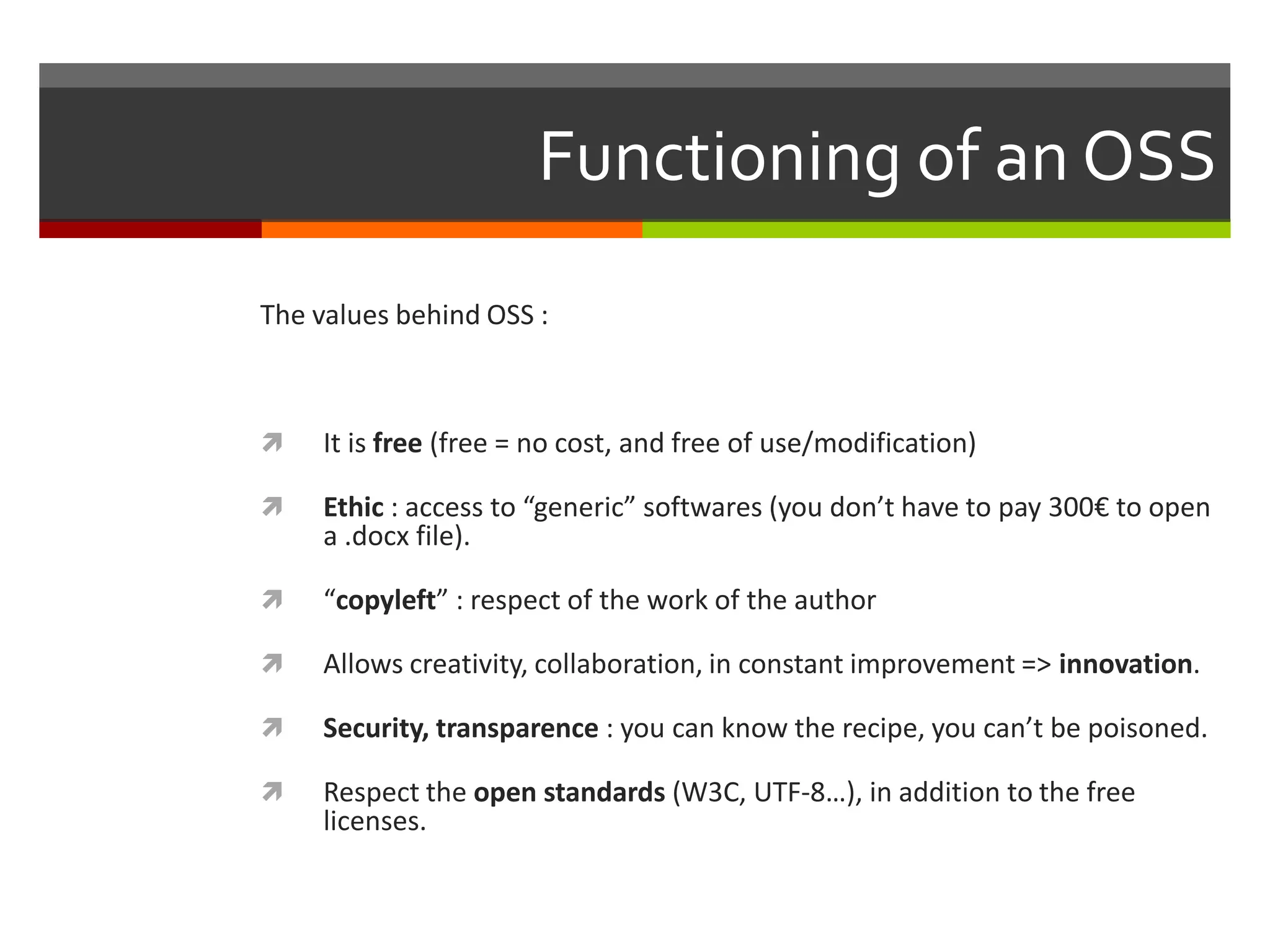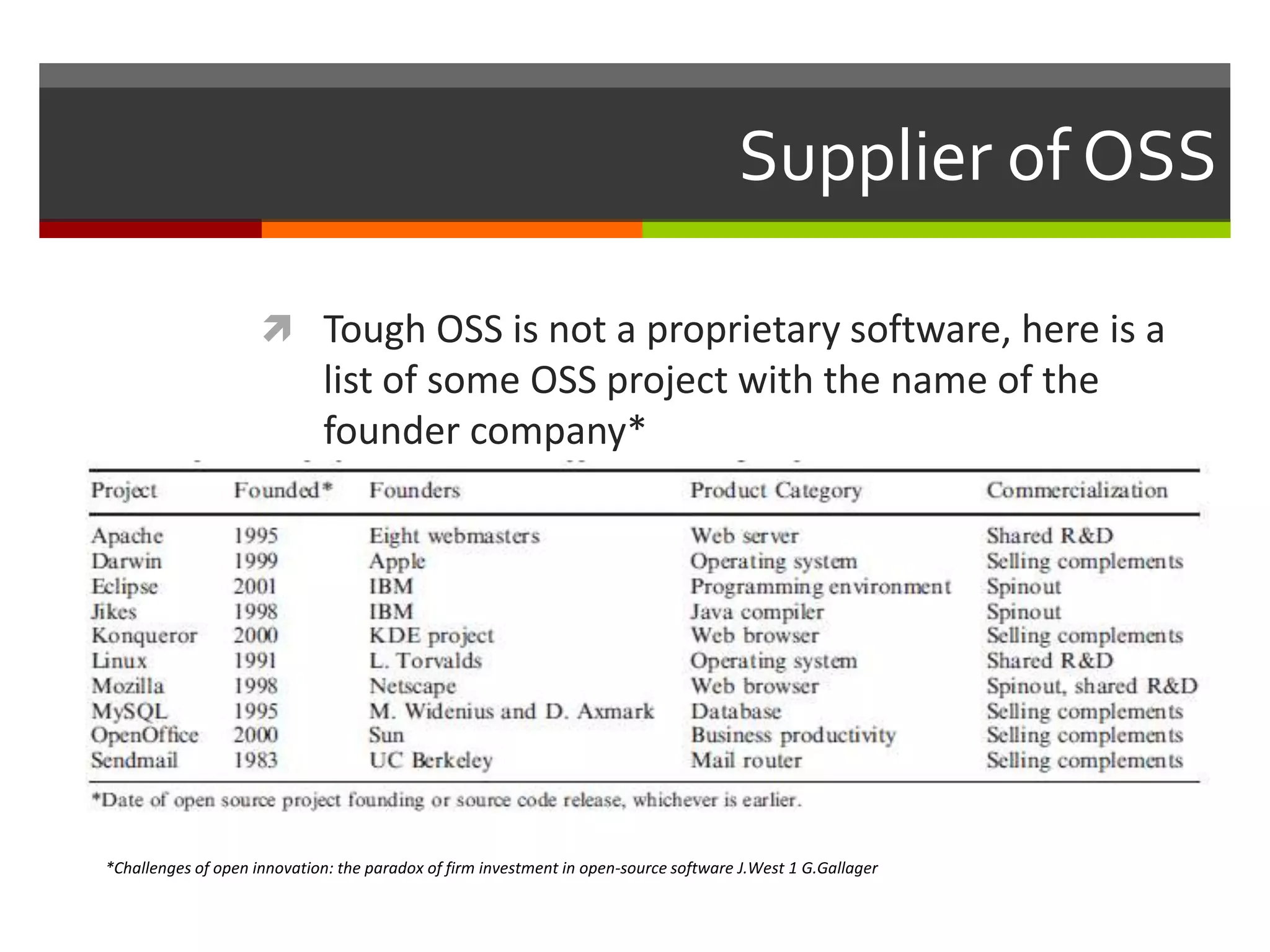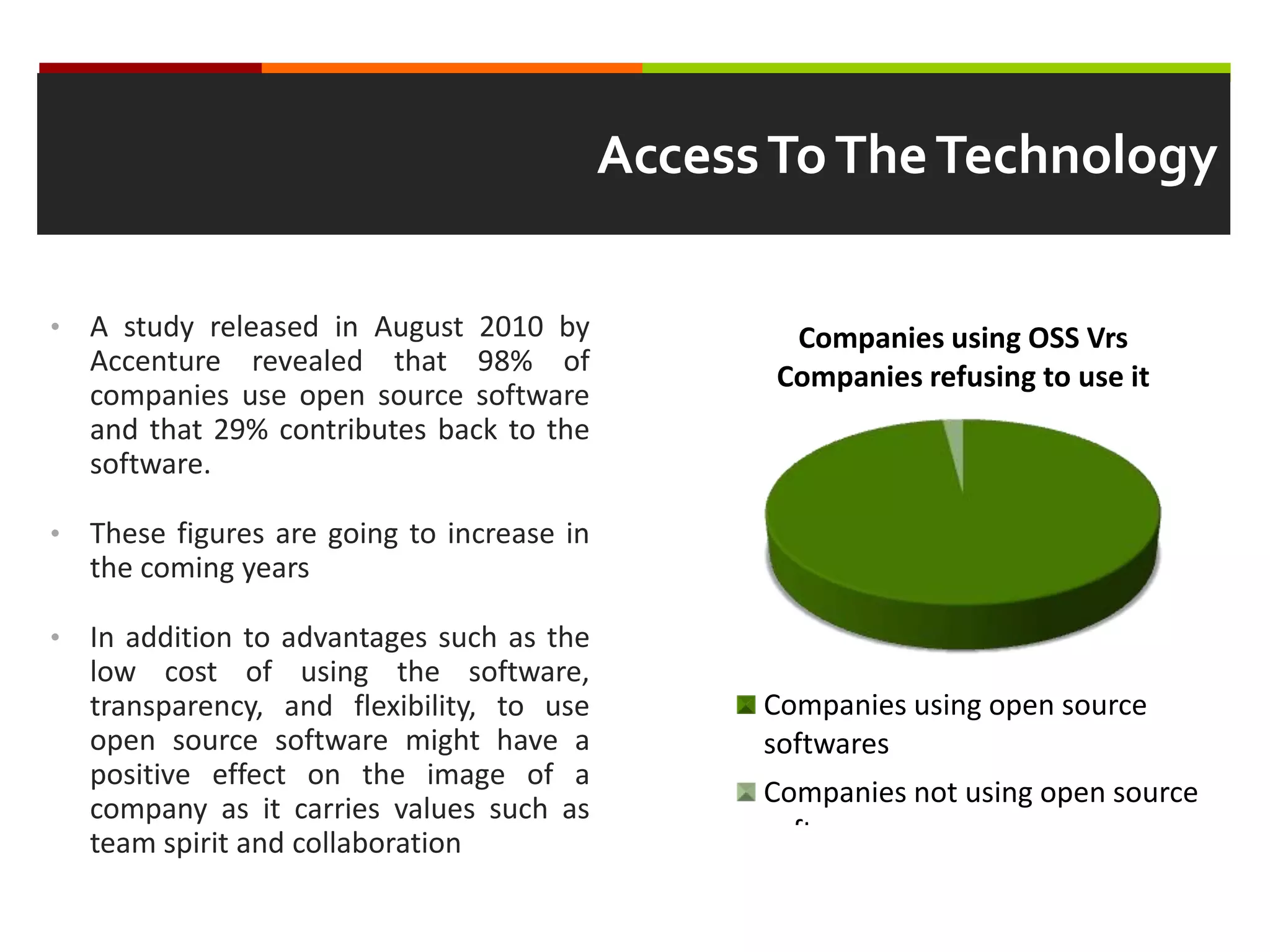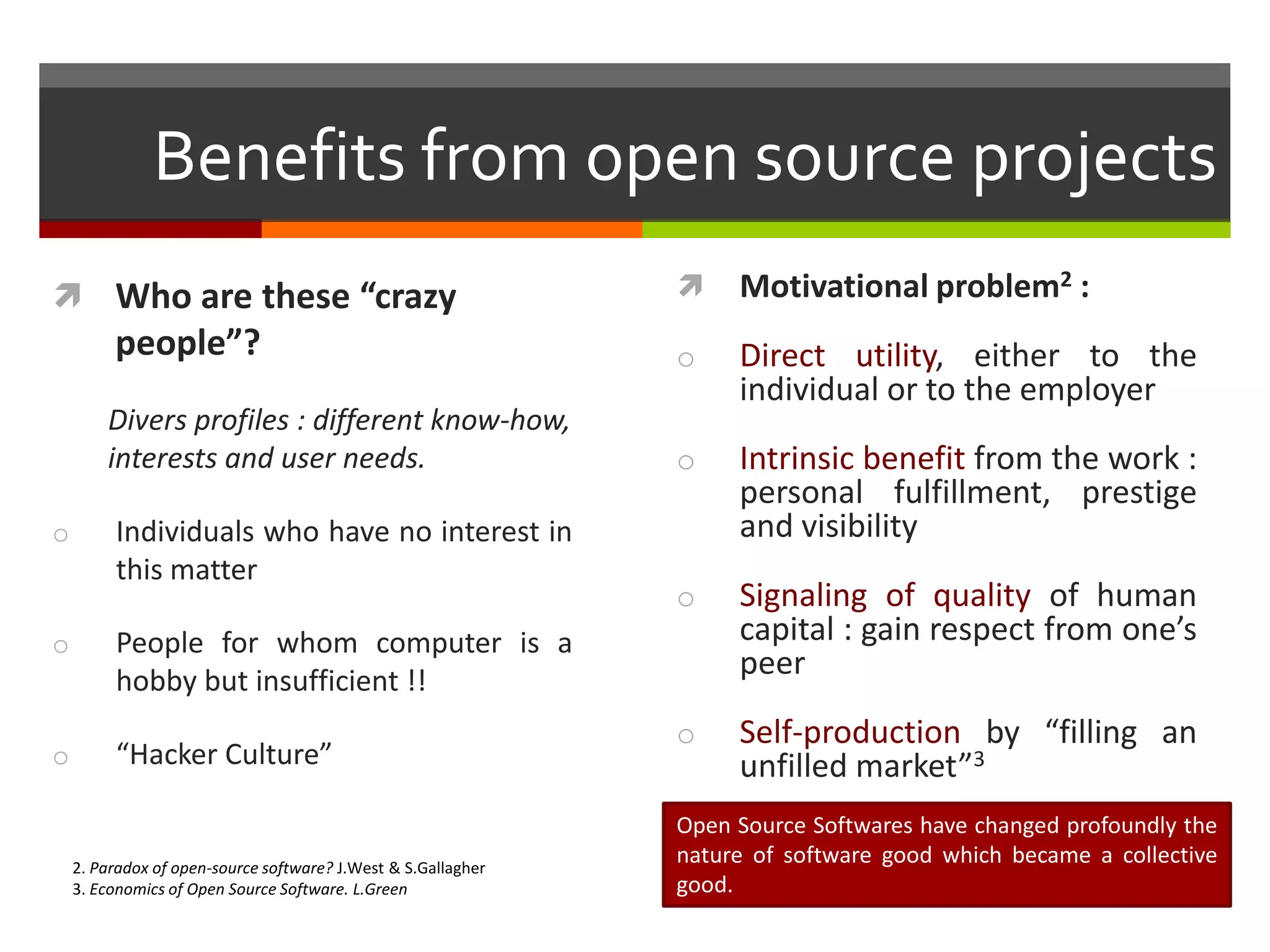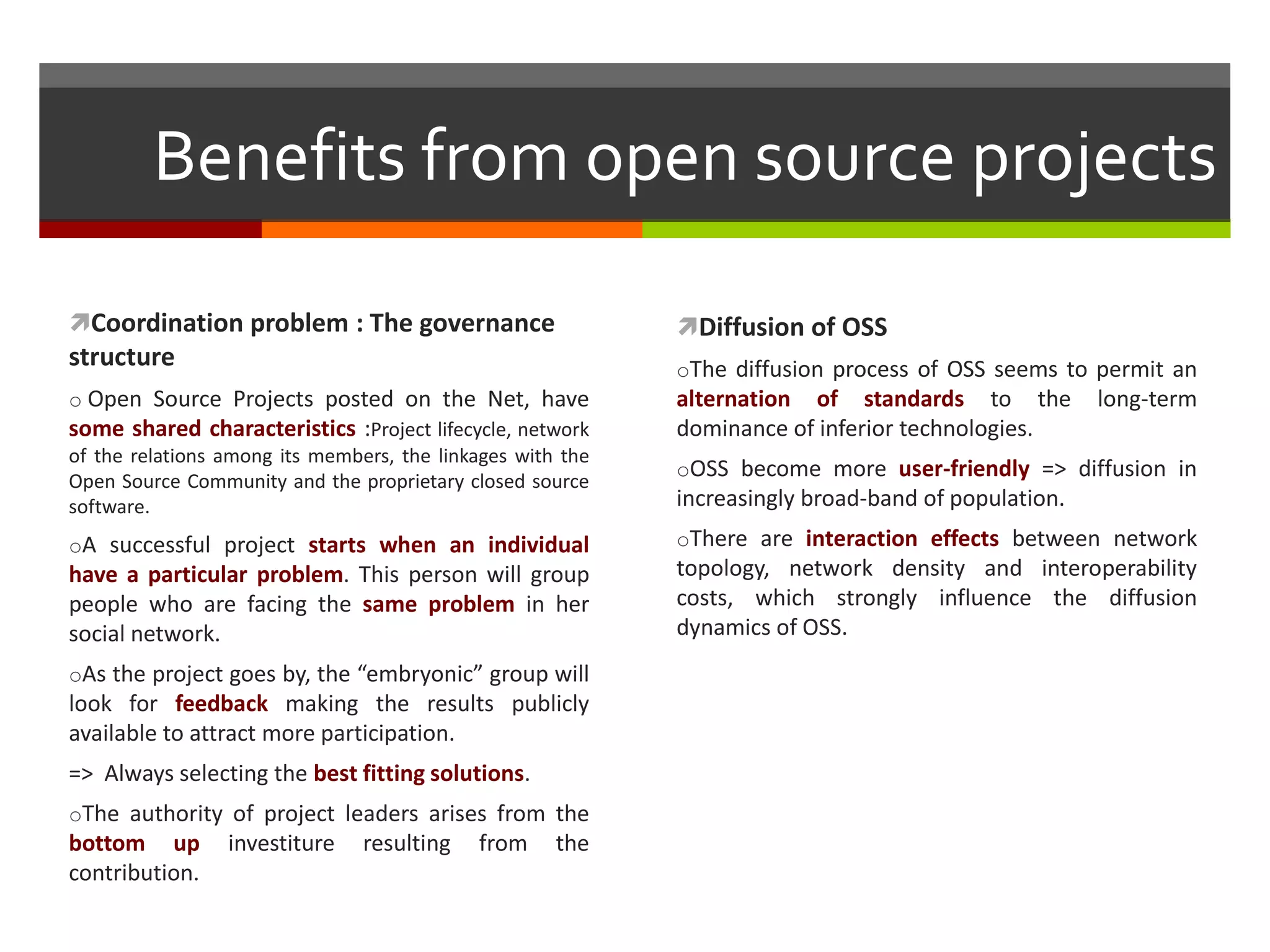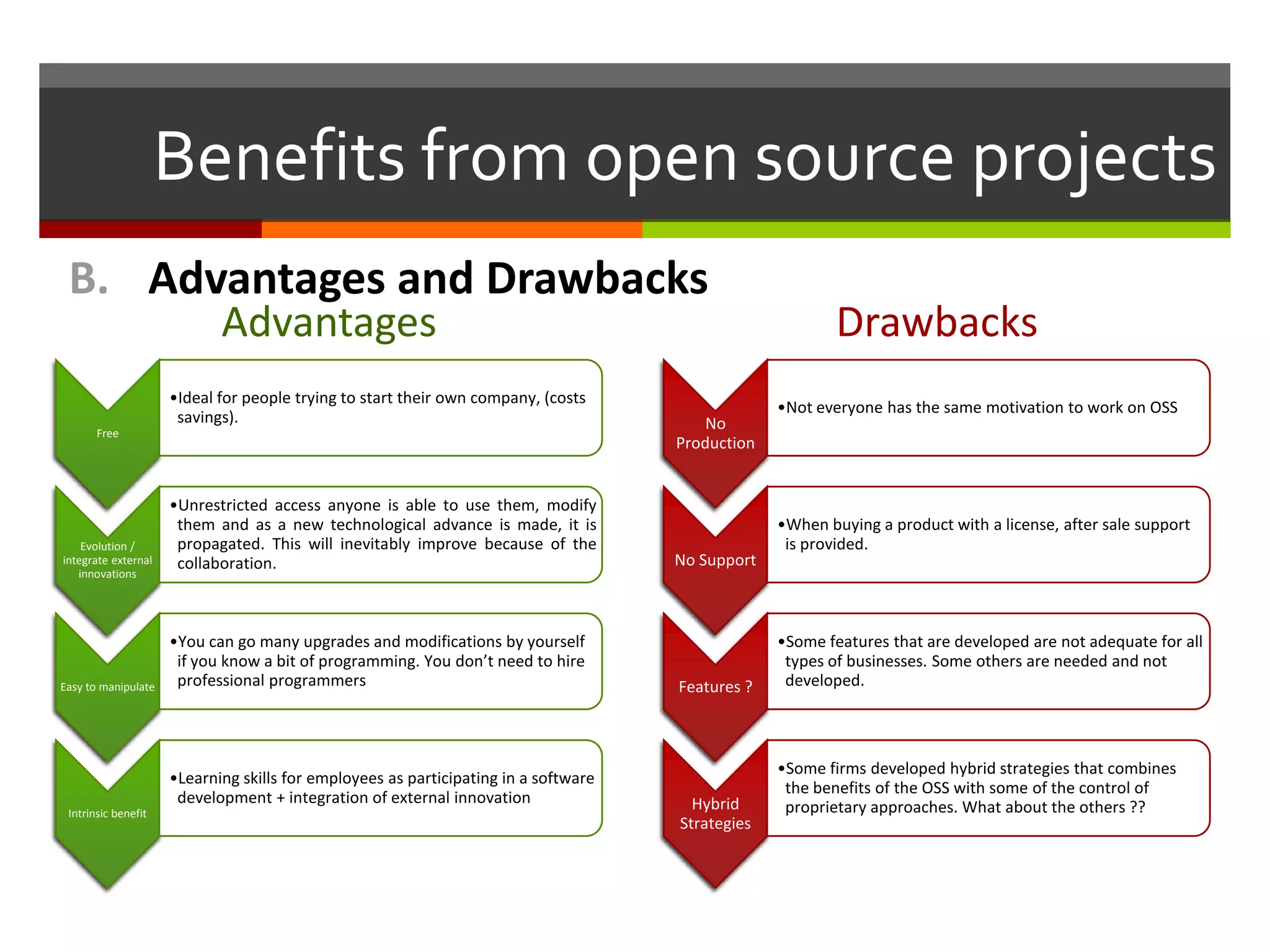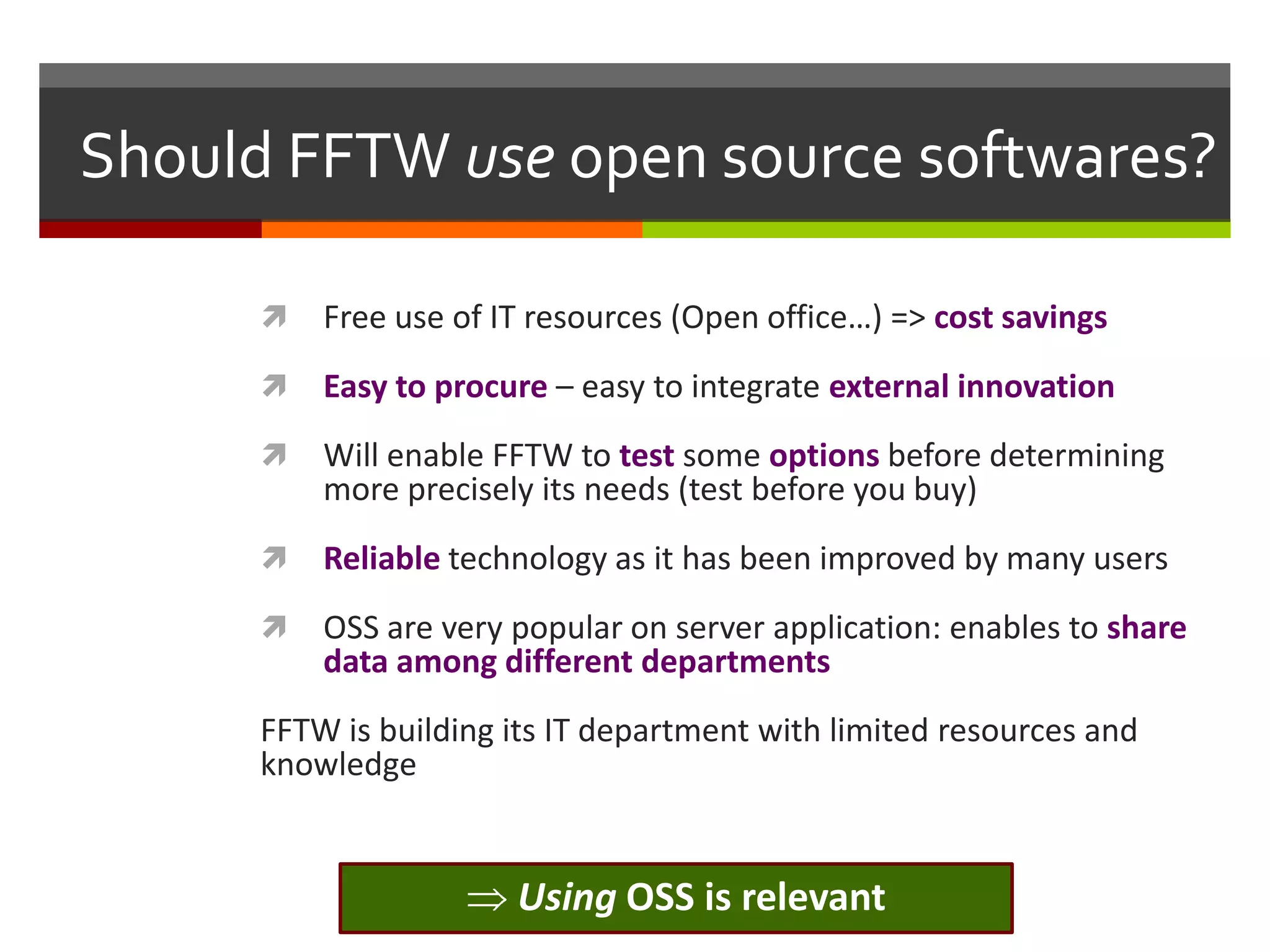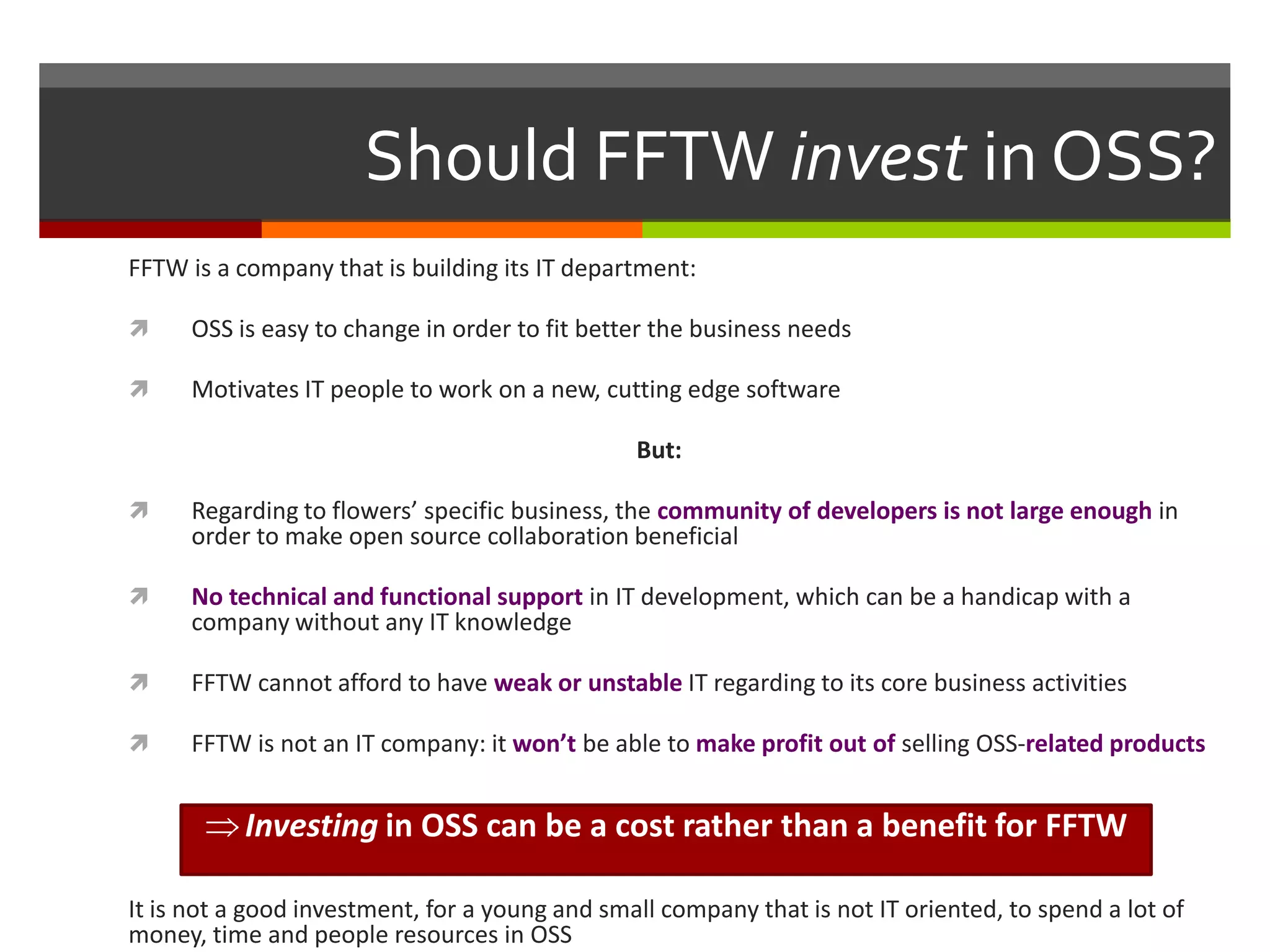This document discusses open source software. It defines open source software as software where the source code is available to the public with a license that allows users to study, change and distribute the software. Open source software originated from the free software movement in 1983 and aims to enhance user freedoms. While common in the early computing era, open source software declined in popularity in the 1970s but has since grown with thousands of projects today. The document discusses how open source software functions by providing access to source code files before compilation. It also outlines some values of open source software like transparency and collaboration. Potential benefits of open source projects include problem solving, signaling quality, and self-production. Challenges include motivation and coordination problems across contributors.
